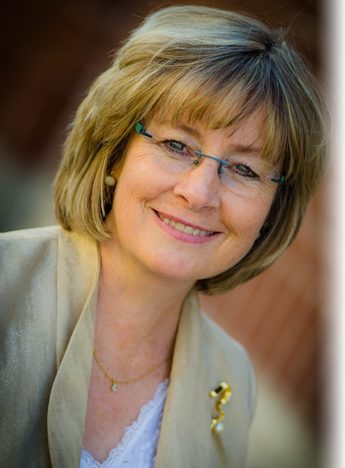Science is finally Validating Religion!: Shared Contemplative Practices
Today, a preponderance of people seek inner peace and balance in their lives through secular, scientifically “discovered” means. One of those is Mindfulness, a practice of learning to be in the present moment with curiosity, intention and non-judgement. Mindfulness is proving to relieve stress and help people achieve a sense of calm. Practices such as mindfulness-based therapies are break-through’s for persons living with mental health disorders and with anxiety. These practices bring about awareness that much of a person’s suffering is based upon one’s own thoughts – as we take one particular scenario or thought and embellish it into a story created in one’s mind, causing regret as one remembers the past, or anxiety as one anticipates the future. They help people to stay in the present with what a person knows, with gratitude and awareness. These practices are shown to actually shift the way the brain works and to strengthen a person’s ability to be present-focused, rather than distracted or frantic. Scientists are discovering that neuropathways in the brain are flexible and can be altered toward different ways of being and thinking.
What most people do not realize about mindfulness practices, however, is that there is nothing new in these discoveries. What science, and the resulting secular practices have shown us, is why and how they work – with repetition, they actually shift the way our brain functions. But that they bring about positive effects is nothing new. Religious people from many traditions have been experiencing the benefits of these practices for centuries. The Buddha taught the Four Noble Truths: the truth of suffering, the cause of suffering (our thoughts), the truth that suffering can end, and that there are practices toward that end. The practice of meditation, stemming from the eight-fold path taught by the Buddha, helps one learn to live in the moment with curiosity, intention and non-judgement. Vipassana Buddhist meditation is actually also called “insight” or “mindfulness” meditation.
Contemplative practices that bring a person into the present moment with gratitude and intention are found in virtually all, and shared by all religions. In Judaism, the name of G-d, spelled YHWH, is not pronounced due to its deeply sacred nature. It is, in contemplative and silent Jewish prayer practices, “breathed” rather than spoken – as the letters symbolize the Breath of God. In Christianity, one often silently repeats a word or name for God such as “Jesus” or “Spirit,” when entering into the ancient silent prayer practice called Centering Prayer. Contemplative meditation practices are also found in Hinduism, Native traditions, and Buddhist traditions. Chanting as a form of contemplative practice is practiced in Sufi ritual within Islam. Almost every religious and spiritual tradition has multiple forms of praise, prayer, song, chanting, and ritual that bring persons into a deeply present, and when with others, communal state of being.
What faithful people have experienced all along is that these spiritual practices shift one’s brain to greater awareness not only of one’s own suffering, but move one to compassion for others. They do not simply lessen one’s own stress. What we know now, thanks to scientific discovery, is that these practices actually shift the way one’s brain functions, away from self-centeredness and defensiveness and toward compassion, humility and gratitude. Through spiritual practices of contemplation and concentration found in all religions, the understanding emerges that we are all connected, all people and all sentient beings.
Some say that the worst atrocities in the world have been caused by religion. I would debate that and say they are caused by misuses of religious principles for political and economic causes, but I would further argue that some of the most compassionate movements and institutions throughout history have been initiated by persons who ground themselves in religious practice. Think of the civil rights movement in the U.S. and the inspiration of Martin Luther King, Jr., himself deeply centered in regular Christian prayer, or the nonviolent revolution led by Mahatma Gandhi, who was profoundly grounded in daily Hindu meditation. Or social services carried out by the Lutheran Church, hospitals by the Catholic Church, or schools, orphanages, and human rights efforts the world over by persons grounded in their religious practice.
What is being lost today by forgetting the roots of mindfulness, is that these practices are not just about oneself and relieving one’s personal stress. Notice, if you do any research on what science is discovering, who is being studied to get results about shifts in brain function due to meditation – monastics and meditators from the world’s great religious traditions! These are the Olympic athletes of meditation, whose brain functions show the effects of practices perfected over thousands of years. Carefully cultivated, contemplative religious practices shift the brain toward compassion for others and for the world. Persons of faith would say they open the way for a higher power to enter our lives and move us to bring about a more compassionate world. These are results of contemplative spiritual practices like mindfulness that religious and spiritual people have experienced all along.

Gail J. Stearns
The Irvin C. and Edy Chapman Dean of the Wallace All Faiths Chapel and Associate Professor of Religious Studies at Chapman University
Gail J. Stearns is The Irvin C. and Edy Chapman Dean of the Wallace All Faiths Chapel and Associate Professor of Religious Studies at Chapman University. She is the author of Open Your Eyes: Toward Living More Deeply in the Present (Wipf & Stock, 2011). An ordained minister of the Presbyterian Church (USA), Gail also holds an interdisciplinary Ph.D. from Washington State University, with emphasis in gender theory, and has taught university courses on world religions, happiness, interfaith dialogue, ethics, and spirituality and gender. Dr. Stearns received her Mindfulness Teaching Certification from UCLA.
